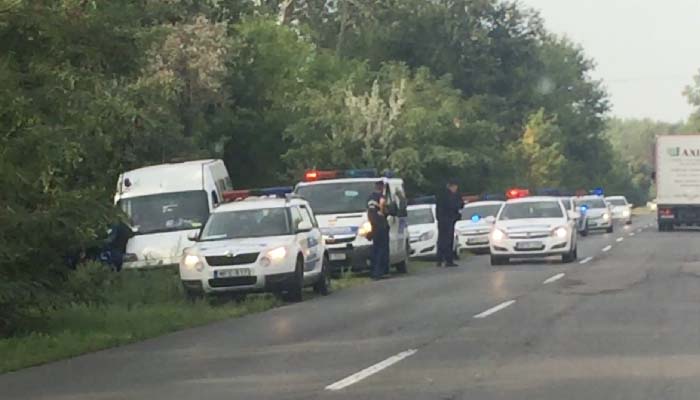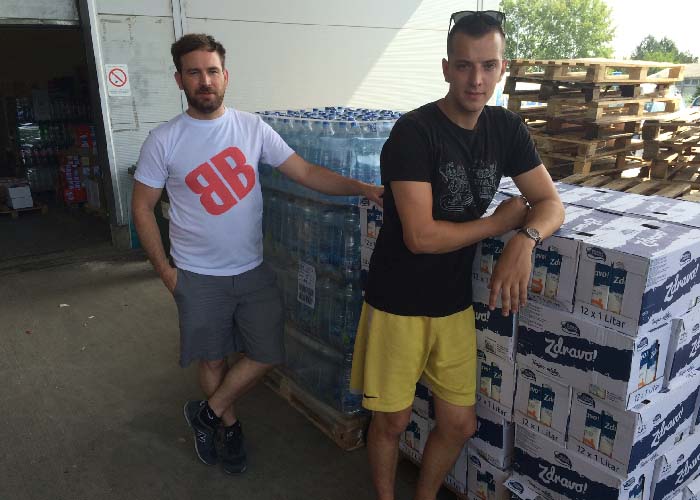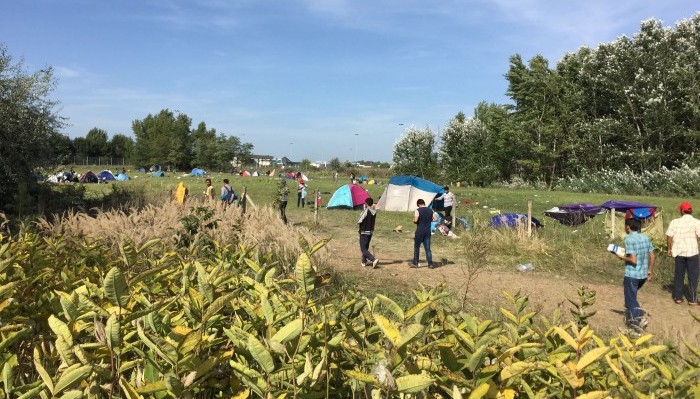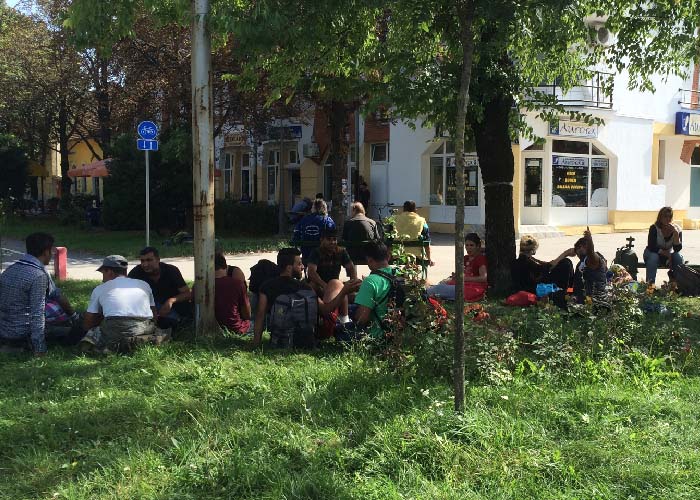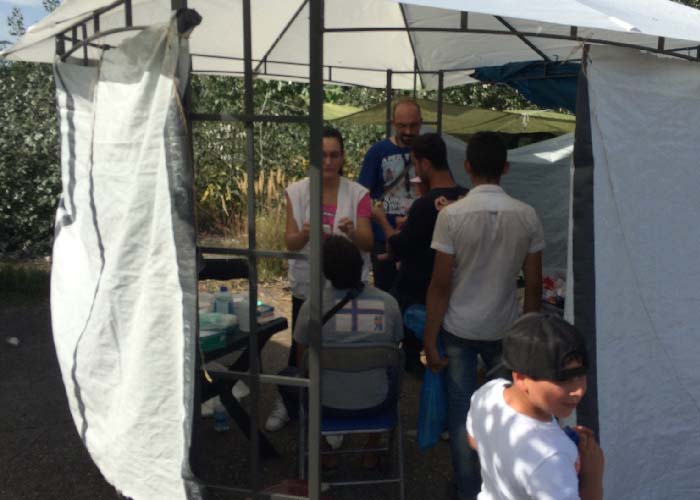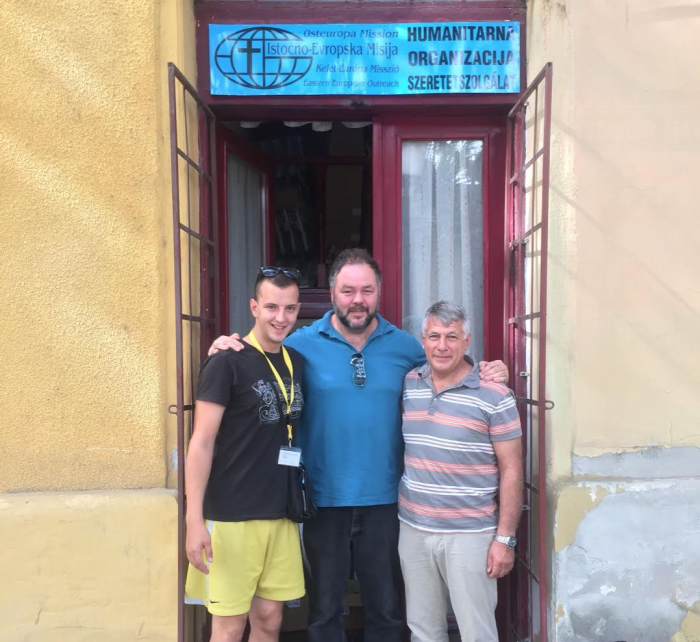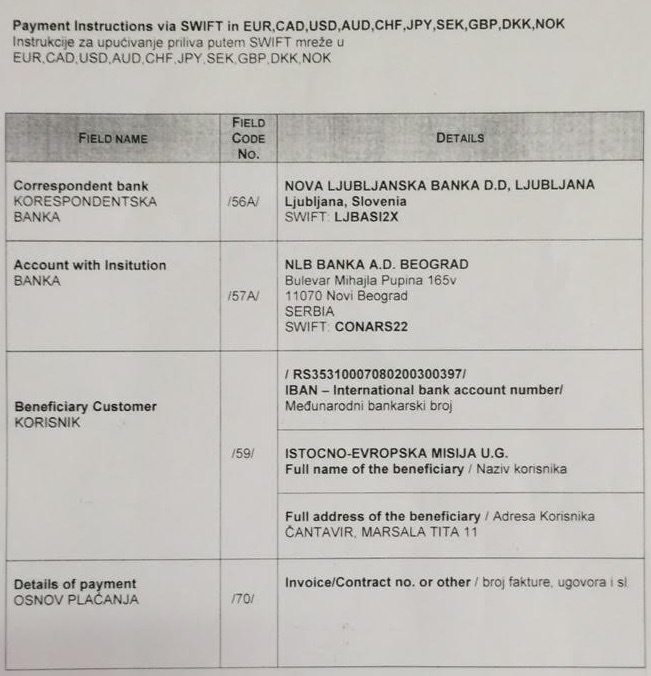Europe’s refugee crisis; How you can help
BY BENJAMIN NOVAK
Originally published September 17 by The Budapest Beacon.
We crossed into Serbia at around 8:30 am Thursday morning. Although trucks were backed up for miles on either side of the border, it only took twenty minutes or so for us to cross both border checkpoints.
On the way there we saw two groups of asylum seekers by the side of the road surrounded by police.
We arrived to Subotica at 9 am where we met with relief workers Tibor Nagy and Dávid Varga of the Eastern European Outreach Humanitarian Organization. Their organization has been providing food and other material aid to refugees passing through Serbia on their way the European Union for the past four years.
Dávid (right) is a former theology student who is studying philosophy at university in Austria. However, he postponed his junior year of study to be able to devote himself full time to helping the growing number of asylum seekers in Serbia.
“We’ve been doing this for four years. The government hasn’t done anything to help these people because it wants them to leave Serbia as quickly as possible. Nor have international charities like the Red Cross done anything to help them” says the volunteer relief worker.
After converting USD 8,000 into local currency, we bought food (canned tuna, sardines, yoghurt, biscuits, milk), bottled water, and sanitary products (toilet paper, wet wipes, baby diapers) at two local supermarkets.
We then hired a truck to deliver the supplies to the border crossing in Horgoš (Horgos) where Dávid’s organization operates an aid station just south of the Hungarian border. There several thousand asylum seekers from Syria, Afghanistan and even parts of Africa are camped out in what can only be described as a no man’s land strewn with garbage with clusters of tents randomly pitched all over the place.
The road to Horgoš was filled with refugees walking in the direction of the Croatian border some 130 km away. Some sought respite from the 37 C degree (99 F) heat in shady areas next to the main road. As we approached the border crossing we saw scores of refugees, including families with young children and mothers with babes in arms, queued up by the side of the road waiting for buses to take them to the Croatian border.
Upon arriving to Horgoš, where, only the previous day, angry asylum seekers had clashed with Hungarian riot police, we saw several hundred refugees of various nationalities camped in makeshift tents. In the tent on the right was living a young women with her husband and three small children, including a 6-month-old infant. When we visited her she was minding the two small children of the family next to them. Under the hot sun the temperature inside the tent was around 40C (104F) degrees. We gave them milk, yoghurt, baby food, diapers, sanitary wipes, and USD 50 so they could afford the price of the bus ticket to Croatia.
The mother, who asked us not to photograph her, was reluctant to board the bus to Croatia. “We want to go to Germany!” she said.
With the help of ten or so volunteers, the supplies were unloaded and immediately distributed. Asylum seekers patiently queued up while the food and water was set out on two adjacent tables. As each stepped forward to take delivery of the food, volunteers told them buses were coming at 4 pm to take them to the Croatian border and to make their way to the motorway some 100 meters west of there.
Besides the Eastern European Outreach Humanitarian Organization, several other aid organizations were also providing relief in the area in the area, including Doctors Without Borders (pictured), the Ecumenical Humanitarian Organization, and Swiss Solidarity.
As we left Horgoš, we saw buses transporting refugees in the direction to the Croatian border
As we were departing, Dávid Varga (left) and Tibor Nagy (right) informed us of their plans to set up a similar humanitarian relief operation in the next day or so on the Croatian border in western Serbia. They said they would be grateful for any contributions, material or otherwise, the Budapest Beacon or its readers might provide. [Beacon editor Richard Field is in the middle.]
“How Can I Help?”
Please consider making a small donation to the Eastern European Outreach Humanitarian Organization per the following wiring instructions, or to any other local or international charity providing material assistance to asylum seekers trying to make their way to Germany or Scandinavia.
NEWSLANC EDITOR’S NOTE: The Budapest Beacon is a sister publication to Real Reporting/ NewsLanc.


